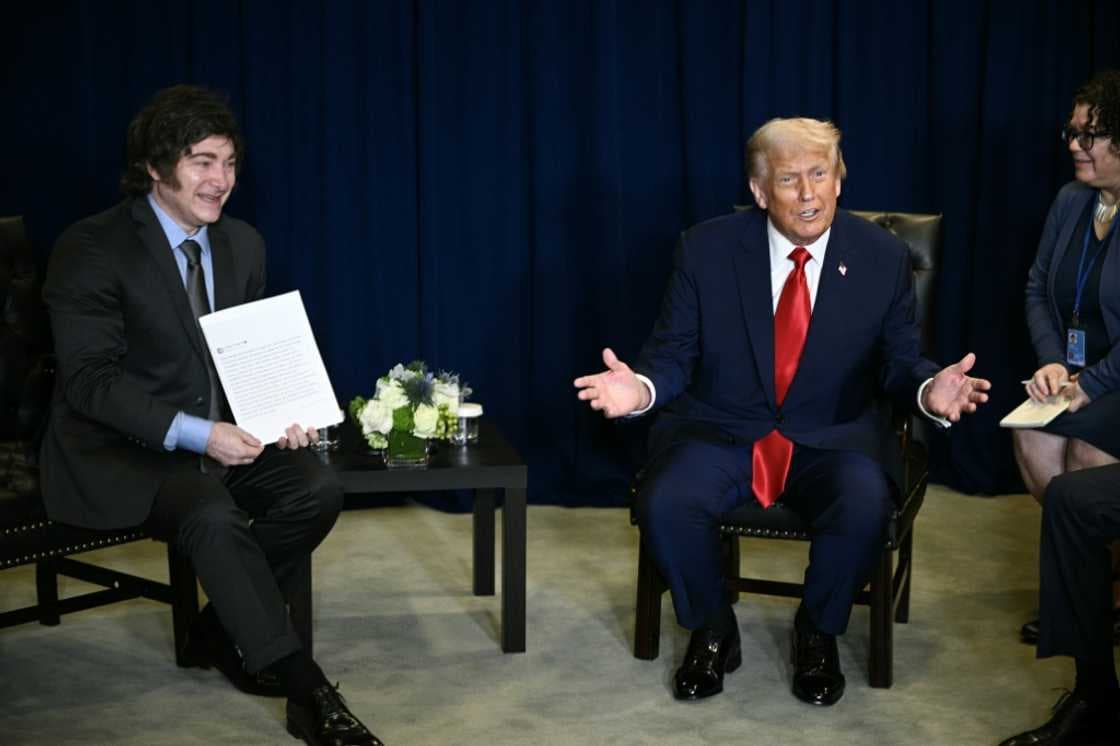We're loading the full news article for you. This includes the article content, images, author information, and related articles.
A reported US ultimatum to Argentine voters—support President Milei or lose a $40 billion bailout—offers a stark preview of the transactional diplomacy and sovereignty challenges Kenya could face from major world powers.

NAIROBI, Kenya – A high-stakes political gambit reportedly orchestrated by the United States in Argentina has sent ripples across the globe, offering a sobering case study for nations like Kenya on the intricate and often perilous relationship between foreign aid and national sovereignty. According to multiple international reports, the administration of U.S. President Donald Trump extended a $40 billion financial bailout to the government of Argentine President Javier Milei, with the aid explicitly contingent on Milei’s party securing a victory in the critical midterm elections held on Sunday, October 26, 2025.
The alleged intervention was starkly articulated by President Trump himself, who was quoted as saying, “If he doesn’t win, we’re gone,” during a visit by President Milei to Washington earlier in October to plead for economic assistance. The financial package reportedly consists of a $20 billion currency swap deal to stabilize Argentina's volatile peso and an additional $20 billion in economic support. This move has been widely interpreted as a direct message to the Argentine electorate: support the U.S.-aligned candidate or face economic abandonment. While Milei’s La Libertad Avanza party ultimately claimed a significant victory, the episode has ignited a fierce debate on the ethics and implications of such overt foreign influence in a sovereign nation's democratic process.
For Kenya and the wider East Africa region, the events in Buenos Aires are not a distant curiosity but a potent illustration of the potential pressures facing developing nations. Kenya, a strategic ally of the U.S. in the Horn of Africa, is also a significant recipient of foreign aid and is deeply integrated into the global financial system, with substantial loans from the International Monetary Fund (IMF) and the World Bank. As of October 2025, Kenya is the third-highest IMF debtor in Africa, with its exposure standing at KSh 388.9 billion ($3.01 billion).
These financial relationships often come with stringent conditionalities. The IMF has recently delayed a new funding program for Kenya amid concerns over the country's debt management and the stability of the shilling, highlighting the leverage such institutions hold. Analysts argue that the line between economic policy advice and political pressure can become dangerously blurred. The scenario in Argentina demonstrates a shift from implicit conditionalities to an explicit “aid-for-votes” model, a precedent that could reshape international diplomacy.
“When a powerful nation ties a financial lifeline directly to an electoral outcome, it fundamentally undermines the democratic agency of the recipient country’s citizens,” stated a Nairobi-based political analyst specializing in international relations. “It transforms aid from a tool of development or mutual interest into a mechanism for political coercion. This is a critical warning for African nations to diversify their partnerships and strengthen domestic economic resilience to avoid being caught in similar geopolitical crosshairs.”
The debate over whether foreign aid undermines sovereignty is long-standing. Proponents argue it is a vital tool for development, while critics contend it creates dependency and allows donors to impose their own economic and political agendas. The U.S. has a documented history of intervening in foreign elections, particularly during the Cold War, though often through covert means. The reported actions in Argentina represent a far more transparent, transactional approach to foreign policy, consistent with the “America First” doctrine.
The real-world context for this hypothetical intervention is the established ideological alignment between Donald Trump and Javier Milei. Milei, a self-described anarcho-capitalist, was the first world leader to meet with Trump following his 2024 election victory and has been praised by Trump as a “MAGA person.” This personal and political affinity provides a plausible backdrop for such a direct and muscular show of support.
President Milei’s administration has been implementing severe austerity measures to combat Argentina’s chronic hyperinflation, which, while showing signs of slowing, was forecast by the IMF to average 41.3% for 2025. These painful reforms have faced public resistance, and his political survival was seen as being on a knife's edge before the midterms, making the U.S. intervention potentially decisive.
For Kenya, which navigates its own path of fiscal consolidation under the watchful eye of international creditors, the lesson is clear. The pursuit of financial stability must be balanced with the safeguarding of political independence. As global power dynamics shift, the conditions attached to aid may become increasingly political, forcing nations to make difficult choices between economic necessity and sovereign integrity. The events in Argentina, though thousands of miles away, serve as a crucial and timely reminder of the price that can be attached to a helping hand.
Keep the conversation in one place—threads here stay linked to the story and in the forums.
Sign in to start a discussion
Start a conversation about this story and keep it linked here.
Other hot threads
E-sports and Gaming Community in Kenya
Active 9 months ago
The Role of Technology in Modern Agriculture (AgriTech)
Active 9 months ago
Popular Recreational Activities Across Counties
Active 9 months ago
Investing in Youth Sports Development Programs
Active 9 months ago